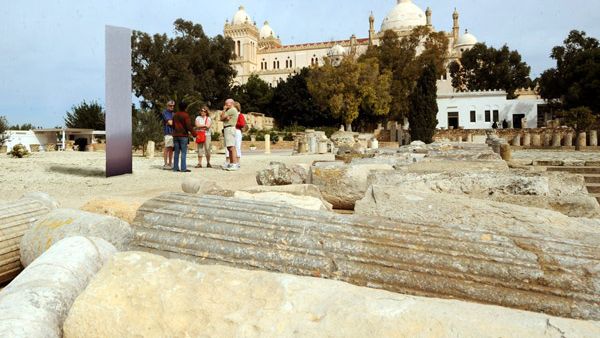Tunisia is one of 77 countries to have kept UNESCO World Heritage sites fully open into the New Year, the agency reported.
Some 167 countries boast 1,121 UNESCO heritage sites throughout the world, but most were closed or restricted last month due to COVID-19 measures.
Only 77 countries kept their facilities fully open between December 18, 2020 and January 13, 2021, the period in which UNESCO last monitored their status. Forty-eight countries partially closed their stites, while 42 shut them down completely.
Ruins of Carthage and World Heritage by Unesco since 1979 Tunisia Africa pic.twitter.com/9fQgm9Z8jm
— Thierry Gauthier (@gauthie74757302) October 22, 2019
Tunisia, host to eight UNESCO World Heritage sites, including sprawling medinas and ancient Roman, Punic and Byzantine architecture, has attempted to allow the public to continue accessing its cultural sites despite a national curfew that has been in place for months. However, a four-day lockdown was introduced beginning January 14 to curb a recent spike in infections.
The traditional and ancestral fishing system of the "charfia" is classified as an intangible world heritage by UNESCO.
— NGO Small Scale Fisheries Tunisia (@ATDPA_SSF) January 10, 2021
It is announced this Wednesday, January 13 at 2 p.m., at the Cité de la Culture in Tunis, with an educational and artistic exhibition. pic.twitter.com/JK8RUZNcCk
Oman and Qatar are the only other Arab countries to have kept their UNESCO World Heritage site fully open during the monitored period. Morocco, Algeria, Egypt, Saudi Arabia, the UAE and Syria kept their heritage sites partially open.
This article has been adapted from its original source.








